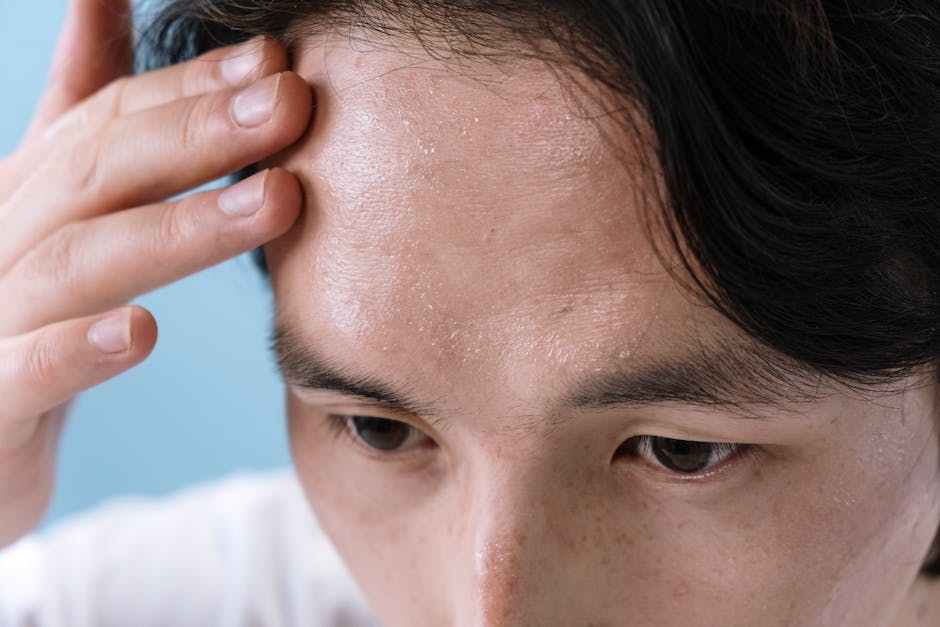Cannabis has been a controversial topic in the medical community for years. However, recent studies have shown that medical cannabis can be used as a treatment for various mental and physical health conditions. Veterans, in particular, have been finding relief from their chronic pain and post-traumatic stress disorder (PTSD) symptoms through the use of medical marijuana. With the growing number of veterans who have access to medical cannabis, it is important to understand how and why this plant-based medicine is being used as a treatment option. In this article, we will explore the ways in which medical cannabis is helping veterans address their PTSD and chronic pain and discuss the benefits and challenges of using plant-based medicine.
Explanation of what cannabis is and the different types and strains (brief history and legal aspect)
Cannabis is a plant-based medicine that has been used for thousands of years for its therapeutic properties. It consists of hundreds of chemical compounds known as cannabinoids, with the most well-known being tetrahydrocannabinol (THC) and cannabidiol (CBD).
THC is the psychoactive component of cannabis that produces the euphoric or “high” feeling, while CBD is non-psychoactive and considered to have more medicinal properties. There are also other cannabinoids such as cannabinol (CBN) and cannabigerol (CBG), which are being studied for their potential therapeutic effects.
Cannabis can be consumed in different forms, including smoking, vaping, edibles, and topicals. Depending on the method of consumption and the strain of the plant, the effects can vary. Sativa strains are more uplifting and energizing, while indica strains are more relaxing and sedating. Hybrid strains combine both properties.
The legal landscape of cannabis is complex and varies by country and state. In some places, cannabis is fully legalized for recreational and medical use, while in others, it’s only legal for medical use, and some places still prohibit it altogether. However, as awareness and research continue to grow, more and more places are legalizing or decriminalizing cannabis.
Overall, cannabis is a promising plant-based medicine that has the potential to alleviate symptoms of various medical conditions, including PTSD and chronic pain. With the different types and strains available, it’s important to consult with a medical professional or a knowledgeable dispensary staff to find the best option for individual needs.
Benefits of using cannabis for PTSD and chronic pain (discuss how cannabis can help alleviate symptoms)
Cannabis has been found to alleviate a number of symptoms associated with PTSD and chronic pain. PTSD can cause anxiety, depression, flashbacks, and heightened arousal. Chronic pain can affect the physical and emotional well-being of a person. Studies have shown that cannabis can reduce anxiety, promote relaxation, and lessen the severity and frequency of flashbacks in those with PTSD. It can also act as a pain reliever, reduce inflammation, and improve sleep quality for those with chronic pain. The use of medicinal cannabis can offer a promising option for veterans who suffer from these conditions as it is a natural and effective treatment option that can improve their quality of life.
Medical research on cannabis and its effectiveness for PTSD and chronic pain (cite various studies and findings)
There has been a growing body of medical research on cannabis and its potential for treating PTSD and chronic pain in veterans. Several studies have shown that cannabis use can help alleviate symptoms of PTSD, including anxiety, depression, and insomnia. In fact, a 2014 study published in the Journal of Psychoactive Drugs found that cannabis use among patients with PTSD was associated with reduced symptoms and improved quality of life.
Moreover, research has also shown that cannabis use can be an effective treatment for chronic pain, particularly in patients with conditions like multiple sclerosis and neuropathy. A study published in the Journal of Pain in 2008 found that cannabis use was associated with significant reductions in pain intensity and improved sleep quality in patients with chronic neuropathic pain.
Furthermore, a review of existing research on cannabis and PTSD, published in the journal Cannabis and Cannabinoid Research in 2017, found that medical cannabis could be a safe and effective treatment option for veterans suffering from PTSD, particularly those who don’t respond well to traditional treatments.
However, it is worth noting that more research is needed to better understand the potential benefits and risks of using cannabis as a medical treatment. Nevertheless, the growing body of evidence suggests that cannabis may offer a promising alternative for veterans struggling with PTSD and chronic pain.
Personal stories of veterans who have benefited from cannabis use (add testimonies and quotes from relevant people)
For many veterans, the use of cannabis has provided relief from symptoms of PTSD and chronic pain that have otherwise been difficult to manage. According to one veteran who spoke with us, “Cannabis has been a lifesaver for me. After years of using prescription opioids and antidepressants, I found cannabis to be the only thing that allowed me to function normally without feeling groggy or in a constant fog.”
Another veteran shared a similar sentiment, stating “Before I started using cannabis, I was barely able to leave my house. The anxiety and pain were just too much to manage. But once I started using cannabis, I felt a dramatic improvement in my overall mood and ability to deal with daily life. It’s not a cure-all, but it definitely makes things easier.”
It’s important to note that these personal stories are not unique. Many veterans have reported similar experiences with the use of cannabis, providing support for the widespread calls for increased access to medical cannabis as a viable treatment for PTSD and chronic pain.
Potential risks and side effects of using cannabis (be transparent about possible drawbacks)
While cannabis has shown promise in helping veterans cope with PTSD and chronic pain, it is important to acknowledge the potential risks and side effects. Firstly, cannabis can cause cognitive impairment, affecting memory, attention, and decision-making skills. Secondly, regular use of cannabis can lead to dependency and withdrawal syndrome, manifesting with symptoms such as irritability, insomnia, and decreased appetite. Thirdly, smoking cannabis can damage the respiratory system, and long-term use can lead to chronic bronchitis. Lastly, cannabis can interact with other medications and cause adverse reactions. It is essential to consult a healthcare provider before using cannabis as a treatment option, especially if taking other medications. Overall, while cannabis has its benefits, it is crucial to be aware of potential risks and side effects and use it responsibly.
Discussion of current laws and policies regarding cannabis use among veterans (address current regulations and how they are affecting veterans)
As of now, veterans face significant challenges when it comes to accessing medical cannabis. Since marijuana is still classified under Schedule I of the Controlled Substances Act, it is still considered illegal at the federal level. This status has resulted in veterans being forced to choose between accessing medical marijuana and losing their eligibility for care at Veterans Affairs (VA) facilities, which are federally funded.
Furthermore, even if veterans do live in a state where medical marijuana is legal, they still need to have a prescription from a healthcare professional who can recommend its use. However, very few VA doctors can provide such recommendations since they work for an agency that follows federal law, so veterans usually have to find a non-VA physician to get that prescription.
This situation is particularly frustrating for veterans who have already sacrificed so much for their country, especially those who use cannabis to relieve PTSD and chronic pain. The current regulations cause them to jump through a series of hoops to access their medicine, or they need to resort to using it illegally, putting them at risk for prosecution.
It is clear that current laws and policies regarding cannabis use among veterans need to be revisited and updated to ensure our veterans have access to the best medical care possible. The country can’t demand so much from its veterans and then abandon them when they need help the most.
Advocacy for expanding access to cannabis for veterans (offer examples of campaigns and the call to action for readers to support)
:
The issue of veterans’ access to medical cannabis has gained traction in recent years, with many advocacy groups raising awareness and pushing for legislative change. One notable campaign is the Veterans Cannabis Project, which has been advocating for expanded access to medical cannabis for veterans since 2017. They argue that medical cannabis can be used to effectively treat PTSD and chronic pain, two conditions that are commonly experienced by veterans returning home from active duty.
Another organization that is advocating for veterans’ cannabis access is the American Legion, which has been lobbying the government to remove cannabis from the list of Schedule I drugs. They argue that it is unfair to deny veterans access to a potentially life-saving treatment option simply because of outdated laws and stigmas.
As readers, we can support these advocacy efforts by contacting our elected officials, signing petitions, donating to relevant organizations, and spreading the word about the benefits of medical cannabis for veterans. By standing up for our veterans’ rights to access plant-based medicine, we can help to address the ongoing health crisis faced by those who have served our country.
Resources for veterans who want to try using cannabis for their PTSD and chronic pain (provide links and contact information for relevant organizations and resources)
There are numerous resources available for veterans who are looking to try cannabis as a treatment for their PTSD and chronic pain. Here are a few organizations and resources to help you get started:
1. Veterans Affairs (VA) – The VA has a variety of programs and resources available to veterans who are looking to try cannabis. They offer counseling and support services to help veterans manage their PTSD symptoms and pain, as well as medical marijuana certification programs in states where it is legal.
2. Weed for Warriors Project – This nonprofit organization helps veterans access cannabis through education, advocacy, and community support. They provide resources for veterans looking to use medical marijuana as a treatment option and also offer free cannabis to veterans in need.
3. Veterans Cannabis Project – This organization focuses on advocating for legal cannabis access for veterans and improving their quality of life. They provide resources for veterans to get involved in advocacy and outreach efforts, as well as educational resources for using cannabis as a treatment for PTSD and chronic pain.
4. American Legion – The American Legion has been a vocal advocate for veterans’ access to medical cannabis. They have conducted their own research on the benefits of cannabis for veterans and provide resources and support for veterans to access medical marijuana treatment.
By connecting with these organizations and utilizing their resources, veterans can find the support and information they need to explore the use of cannabis as a treatment option for their PTSD and chronic pain.







